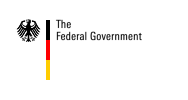The meeting was attended by the ministers of justice and home affairs from France, Italy, Japan, Canada, Russia, the United Kingdom, the USA, Germany. The Prosecutors-General from the United Kingdom and Russia and the European Commission Vice-President responsible for freedom, security and justice, Franco Frattini were also invited.
Speaking after the meeting, the Federal Minister of the Interior, Wolfgang Schäuble expressed he hope that the G8 Summit in Heiligendamm will be a success. He is convinced that the meeting has given positive impetus to regular cooperation among the countries involved.
In the field of terrorism, the G8 states agreed that common efforts must be continued, and stepped up where necessary. Cooperation in the field of information and communication technologies, for instance, is to be improved. "The use of the Internet for terrorist purposes must be combated more effectively," emphasised Schäuble.
The G8 states also aim to turn their attention more to the problem of home-grown terrorism – the radicalisation of citizens of industrialised states, which in its most extreme form spawns terrorists. Integration activities and measures to involve civil society are to be used here, with activities actively addressing young people. Security-policy measures alone are not enough in this context, as all participants agreed.
Quashing opium cultivation in Afghanistan
The G8 ministers are concerned about the meteoric rise in the production of opium in Afghanistan and the impacts this is having on the global drugs market. Schäuble described the situation as "appalling". The minister will be working to bring about a sustainable decline in narcotics cultivation and the drugs trade, working closely with the Afghan government.
German will be making its contribution, training the Afghan police force, and improving cooperation with Afghanistan's neighbours.
International efforts should build on four pillars:
The drug trade is to be tackled by taking specific measures against drug dealers and the drug barons that operate behind the scenes. In Afghanistan the existing ways of earning a legal living are to be deepened and strengthened, while parallel efforts are to be made to reduce demand for illegal drugs and develop state institutions at central and provincial levels.
Migration and integration
The G8 agree that migration and integration have become everyday experiences in our globalised world. The phenomenon of major, sustained migration flows, with all the attendant problems, is here to stay.
If migration is not to become a problem for inner tolerance and for the stability of our accustomed system of civil liberties, migrants must manage to integrate into their host society.
Fighting product piracy
Ministers also agreed on measure to better protect intellectual property rights.
"In a globalised world, national moves against piracy and unauthorised copying cannot be successful. We have thus agreed to improve the way our prosecution authorities share information through national contact points, and to enhance the avenues for cooperative investigations that transcend national borders," explained Federal Minister of Justice, Brigitte Zypries.
Product piracy and other violations of protected rights harm national economies, companies and individuals. In 2006 the German customs authorities alone seized counterfeit goods worth 1.2 billion euros. Worldwide, according to an OECD study from the same year, the damage totalled 200 billion euros. The Federal Ministry of Finance estimates that product piracy costs German businesses 25 billion euros a year, and jeopardises some 70,000 jobs.
Many consumers buy counterfeit products in good faith, and are thus effectively defrauded; in individual instances the counterfeit products can even pose a health hazard, such as harmful ingredients used in counterfeit drugs or allergenic dyes used in clothing. Perpetrators and victims can be found all over the word, in developing as in industrialised nations.
Many consumers buy counterfeit products in good faith, and are thus effectively defrauded; in individual instances the counterfeit products can even pose a health hazard, such as harmful ingredients used in counterfeit drugs or allergenic dyes used in clothing. Perpetrators and victims can be found all over the word, in developing as in industrialised nations.
Protecting children better
On the first day of consultations, the ministers adopted a joint declaration on improved protection against child pornography. It underlined the fact that child abuse committed abroad must be rigorously punished in the home countries of the criminals. The tourist countries must be given assistance here, to gather evidence for instance.
"Every photograph involving child pornography is preceded by abuse. We agree that to allow us to effectively pursue these crimes, which are very often cross-border in nature, we need a standard and sufficiently wide definition of the term "child pornography". A child must be defined as a person under the age of 18, virtual child pornography must be covered, and appropriate penalties must be available," stressed Zypries.

